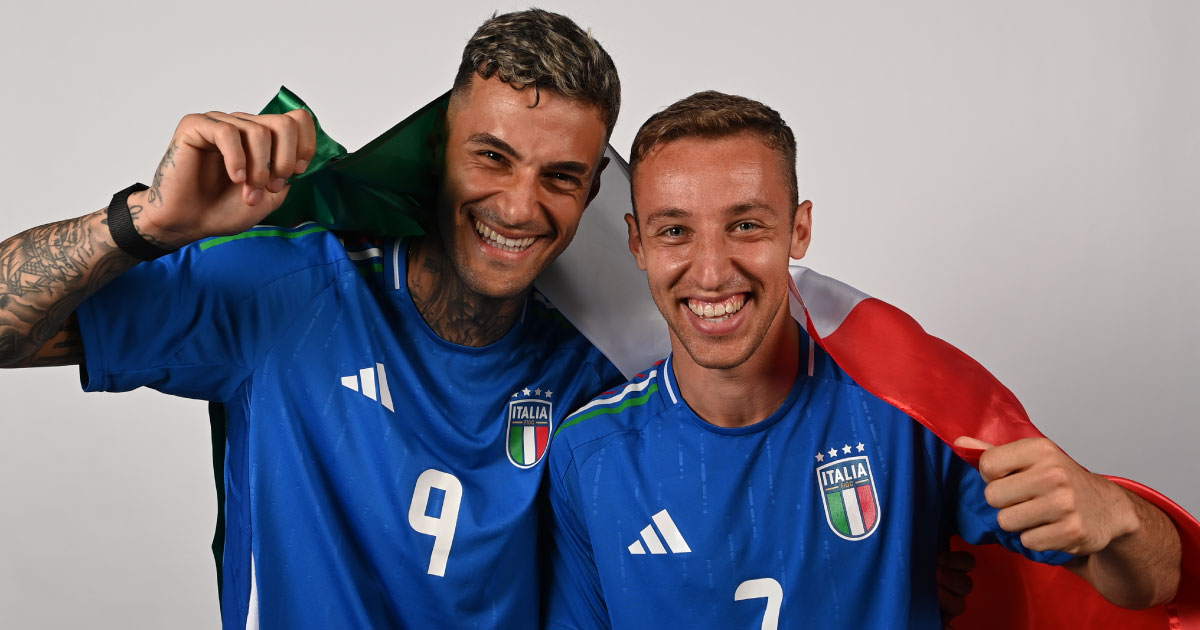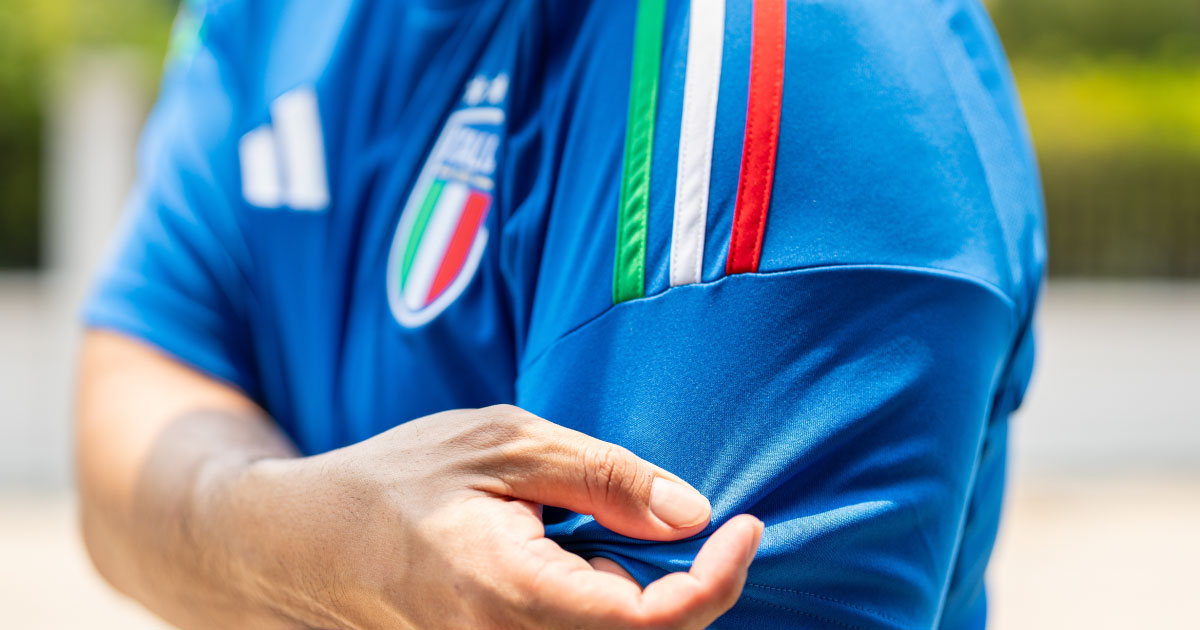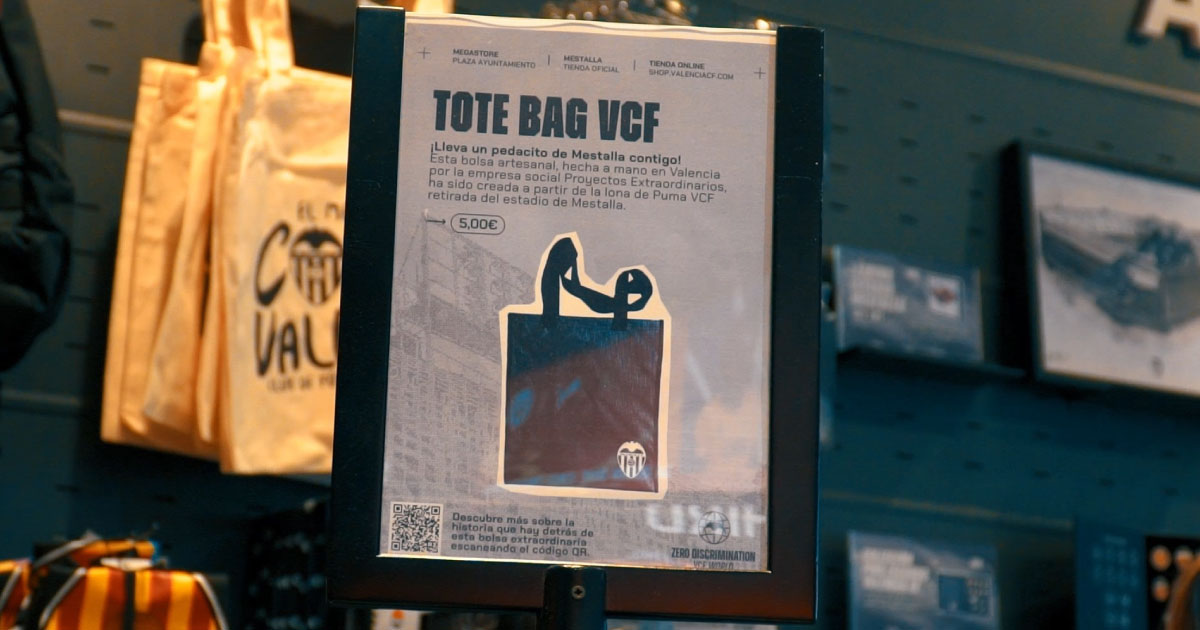Within the FIFA regulations, also adopted by UEFA, there is a rule regarding technical equipment and what can be displayed on it.
Sponsorships in the world of football began in the early 1970s thanks to the partnership between Jägermeister and Eintracht Braunschweig.
This innovation forever changed the world of football, creating connections with various sectors that began to approach the football industry.
Since then, a domino effect has involved all major European and global football organizations.
However, this phenomenon mainly involved clubs and not national teams, which have never been allowed to display a brand partner’s logo on the front of their jerseys.
But where does this prohibition come from?
Within the FIFA regulations, also adopted by UEFA, there is a rule regarding technical equipment and what can be displayed on it.
Indeed, according to Article 57.1, “during any match, any advertisement of sponsors, products, equipment manufacturers (beyond the scope of the manufacturer’s identification mark authorized under Chapter VI), suppliers or third parties, as well as any political, religious or personal messages and/or others, are strictly prohibited on all game clothing items used or introduced (permanently or temporarily) in the field area.”
This rule essentially aims to protect the commercial relationships of the major global administrative and regulatory bodies, such as UEFA and FIFA, and to avoid potential competition situations or to ensure exclusivity clauses.
For example, Bitburger is the official beer sponsor of EURO2024 and, to be so, requires its brand and products to be shown exclusively.
Commercially speaking, it would be inappropriate and difficult for UEFA to manage ensuring that no agreements are made between individual federations and other beer brands.
UEFA, like FIFA, has a vast array of commercial relationships for these types of competitions and allowing national federations to display jersey sponsors could create conflicts between its sponsors and those of the national teams.
Although it is difficult to speak of a missed revenue opportunity, the space on the jersey would certainly have great value, if sponsorships were allowed, for the Federations.
Despite the prohibition, some national teams have found ways to sell commercial spaces to promote their brand partners.
In the French team, for example, the Bleus train in kits with the logos of Crédit Agricole, Volkswagen, and Orange. The Azzurri, on the other hand, display Eni, Fiat, TIM Vision, and Poste Italiane.
The only Federation that found a loophole was Ireland.
The Football Association of Ireland had signed an agreement with Three to display the telecom brand’s logo on the national team’s jerseys for sale, although this agreement expired in June 2020.
EURO2024, here is the rule that prohibits the main sponsor of the national team team
Within the FIFA regulations, also adopted by UEFA, there is a rule regarding technical equipment and what can be displayed on it. Sponsorships in the world of football began in the early 1970s thanks to the partnership between Jägermeister and Eintracht Braunschweig. This innovation forever changed the world of football, creating connections with various sectors that began to approach the football industry. Since then, a domino effect has involved all major European and global football organizations. However, this phenomenon mainly involved clubs and
A new digital blue era has begun with Vivo Azzurro TV
In the midst of the last two seasons, during which Serie A has frequently questioned the utility and feasibility of a proprietary platform to broadcast video content, matches, and live events, the FIGC has forged ahead by launching Vivo Azzurro TV, the perfect hybrid between an OTT service and an official app useful for fan engagement activities. After various rumors among industry insiders about the creation of a similar project, on May 14, the FIGC finally launched the OTT project with an event
The old banner ‘Football belongs to the brave’, reused in tote bags with a 100% solidarity purpose
On World Environment Day, Valencia CF and PUMA, through the Valencian social enterprise Proyectos Extraordinarios, have given a second life to the old banner ‘Football belongs to the brave’. These bags are marketed in the Club’s Official Stores. This banner was handed over to Proyectos Extraordinarios, which works with women at risk of social exclusion, and was transformed into Totebags -handbags-. 100% of its profits will go towards integration and social development projects. https://twitter.com/valenciacf/status/1798276485175746625 The products are delivered with a visible QR label on the exterior that





